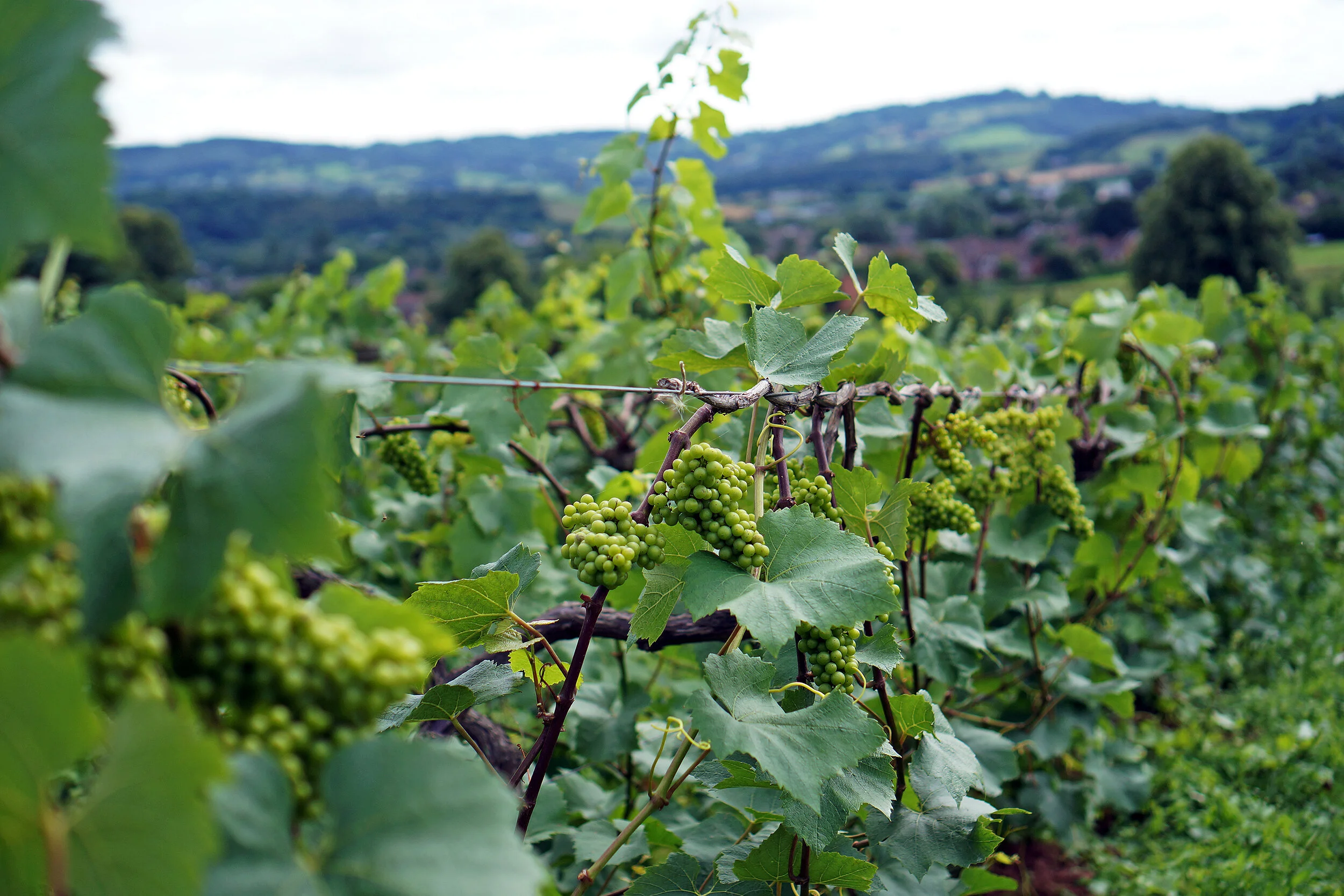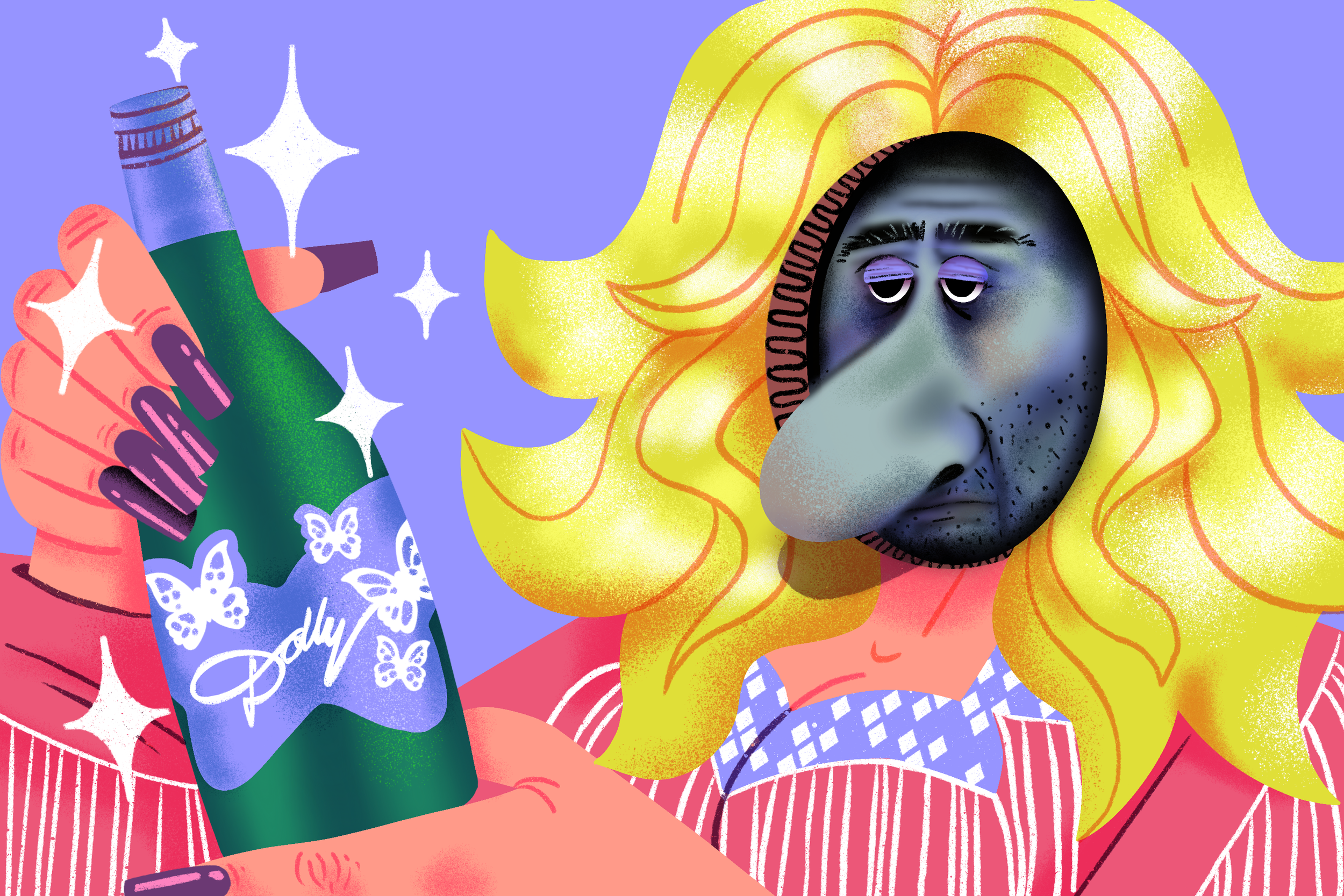Sweet Silent Thought — On Wine and Memory
Butter spread very thickly onto bread and sprinkled with crystallised snowflakes of salt, cold red wine that tastes like the light catching cherries in an oil painting, pistachio cream eaten straight from the jar whilst sitting on the kitchen counter, ready salted crinkle cut crisps as gifts, black coffee that tastes like brown sugar and plums.
I come up with my best tasting notes when I am alone. I can reel off flavours in front of people—citrus peel, jammy dodgers, passion fruit seeds—it’s my job, after all. I can be a brat about the tasting notes of others—“what the fuck am I supposed to do with fresh, citrus, fizzy?”—but to properly assess my own response to a wine in detail demands solitude.
“I need my memories. They are my documents,” Louise Bourgeois writes in The Locus of Memory Works 1982-1993. “I keep watch over them. They are my privacy and I am intensely jealous of them.” I highlight these words as I read them. I feel a similar ferocity towards my own.
When I drink a wine that fizzes with lemon sherbet I think of Sophie picking me up and driving me to the beach one sweltering August Friday, where we gossiped as we swam and drank radlers as the sun set in front of us. When I catch the blossom of roses as I swirl my glass my mind drifts to my sister Hannah and the reverence she holds for those treacherously intricate stems, the pastel coloured petals that unfurl from them. When my tongue detects the juicy salinity of fat, glistening green olives I think of sitting at the bar Helen worked at and removing the gordal garnish from my campari spritz, offering it to them as a gift.
These tasting notes are true and they are there and they are mine. No one can say otherwise.
The bastardised science of it is this:
When you smell something—be it a glass of wine or quite literally anything else—odour molecules travel up your nose and bind to receptors located in your nostrils. These receptors will send signals up the olfactory bulb which can be found more or less above your eyes where they will be translated into smells and flavours by your brain.
Illustrations by Hannah Robinson
However, there are also connections between your olfactory complex and areas in your brain called the amygdala—in charge of emotions—and the hippocampus—in charge of memory. The signals for scent will therefore shimmer through these neuro locations where you remember and feel and the three become intertwined; one released by the urgency of the other.
If memory informs flavour, if we cannot taste what we have not experienced, if each person will experience a wine differently depending on the meals they have eaten and walks they have taken and people they have loved—does our ability to recall the past triumph over all else in matters of taste?
Fingers hunting for crystallised kernels of corn in the bottom of a paper bag, teeth cracking into the yellow orange brown of the Reese’s pieces a friends palm offers up to me, the confected fuchsia of a pink gin and tonic in a can one in each pocket, one scoop of peach amaretto one scoop of raspberry sherbet please, can I get cajun fries with that.
I know what my wine tastes like. It tastes like the powdered sugar and flaked almonds I catch on my tongue after devouring a croissant, or like that earthy, verdant smell of your greenhouse on a sunny day in July—like eyes closed, lips curled, face angled towards the embrace of the sun.
I don’t know what her wine tastes like.
The doctor diagnoses her with Alzheimers and Lewy-Body Dementia. Stupidly, I always thought one was synonymous with the other. I didn’t know you could get both. I am almost impressed. I cry a lot in the days after the diagnosis. The panic swells in my chest and rises up into my throat where it gets stuck and I struggle to breathe and I have to walk outside and calm myself down by leaning my head against the brick wall and closing my eyes and reeling off the meals I have eaten recently, slowly, one by one.
““What if one day I no longer know what my wine tastes like?””
I want to know what her wine tastes like.
I can’t think about what is going to happen to her. Instead, I find myself obsessed with whether her perception of taste has changed. I think of whether memory can still come to her each evening when she pours herself a glass of wine. I want to ask someone this but it seems so silly in the grand scheme of things—can she still taste if she can’t remember? Can she feel flavour anymore? Is this why she drinks more now?
What if one day I no longer know what my wine tastes like?
I become selfish in these moments. Thoughts of her quickly turn into thoughts of myself. What if one day this happens to me, too?
Stock made with the pearly shells of king prawns and sparing strands of saffron added to the rice so it glistens pink, drizzling honey onto mounds of thick, Greek yoghurt for breakfast, there’s a white chocolate magnum in the top draw of the freezer—I saved the last one for you, thick raspberry jam oozing out of the soft, sugared dough, tongue licking lips, hands ripping up basil leaves thrown last minute into a smoky, sunset hued romesco sauce.
I am a collector. Each moment I accumulate I keep safe in the hope I come across it later on. I hoard my feelings and my flavours and I hold them close because now I understand I will not have them one day. My memories do not belong to me. I know this now. File it under palate expansion I say when I experience something I don’t like, feel it anyway. I do not turn back to the past often, I want to push forward whilst I can, but I am grateful when my memories choose to visit me.
Oh look, here is the day I walked down Glossop Road giggling with Amy as we ate big spoonfuls of lemon meringue ice cream, here is the pink grapefruit of the paloma I drank in Mexico City on my birthday, here are the peaches I slowly roasted in the oven as a way of saying thank you for having me to stay. What a life I have lived! What love I have known!
At work I curate wine lists and I write tasting notes, and I host events. I am a wine programme manager—fine, sure, whatever you say—but also I am a facilitator of pleasure. It is my job to notice what makes people feel good, how they respond and shift and react to the glasses I pour for them, and I am grateful to have an occupation that requires this level of sensory awareness. What is the point of consumption if you close yourself off to feeling? What is the point of life if not to provide and receive pleasure and gain a greater sense of self and how you relate to others in the process? What horrors it would be to lose a self you have never taken the time to truly know.
My youth made me arrogant. I thought there would always be more, but watching her slip and stick on memories once solid I see that’s not guaranteed. Now, when I remember a moment through a wine—good or bad—I know how lucky I am. Whether it was that night in the rain or that morning in bed or that afternoon in the kitchen I am blessed when they surprise me with their appearances. If I lived differently, if I had chosen differently, would my wine taste different for it? Does it matter? If I am going to lose this all eventually, this sense of self that cements itself as I taste, I think that I would rather feel it unquestioningly, in its entirety, right down to the pith and to the stone.















